World Cup 2022: Is Wales still the land of song?
- Published
How Yma o Hyd became a Welsh football anthem
The World Cup has taken the sound of massed Welsh singers to a global audience on an unprecendented scale, even if the name of the team's rousing anthem, Yma O Hyd (Still Here) no longer applies to the players.
But is the original meaning - that the nation and the language were surviving - still true of its famed singing tradition?
Google "land of song" and you will see Wales plastered all over the responses.
Its renowned choirs grew from the industrial heartlands, composed of men who forged strong bonds working and living alongside each other.
In parallel were the chapels of non-conformist Wales, often the only venue for gathering in some communities, where singing together was a social as well as a religious experience.
Now the coal mines are gone and Christianity is a minorty pursuit.
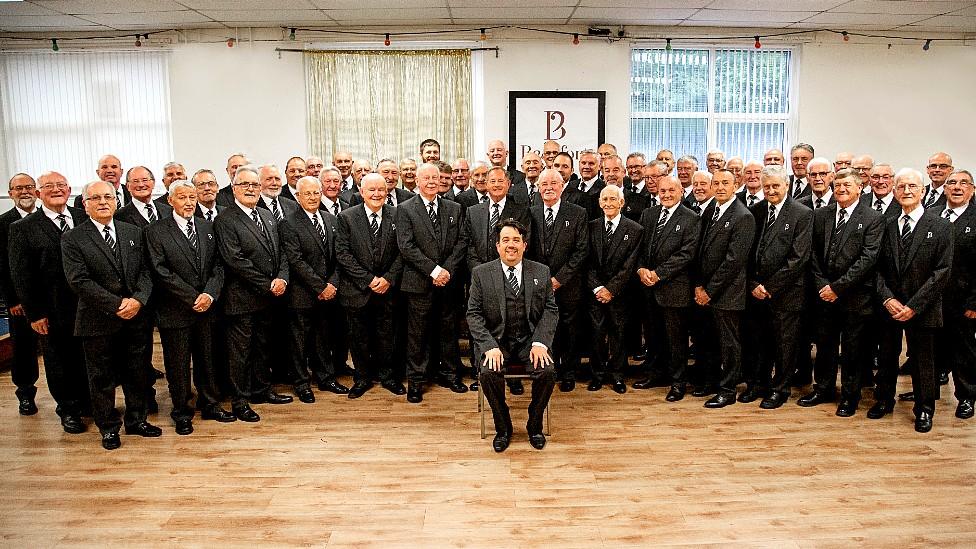
Beaufort Male Choir comes from a town with a choral tradition stretching back to the 1860s
Beaufort Male Choir in Blaenau Gwent used to draw nearly all its membership from the Ebbw Vale steelworks, once the biggest in Europe, with miners likely to make up most of the rest.
Now only one member works at the much smaller steelworks site, said chorister Chris Evans, who is also secretary of the Welsh Male Choir Association.
That represents 5,000 singers across south and west Wales, and along with its north Wales counterpart, covers about 120 male choirs.
"We have no no ex-miners. We have loads of teachers. We have sales people, people making packaging, self-employed, etc," said Chris.
He acknowledges the choir is "certainly smaller" compared to the 1950s when there was double the current membership of about 60, although they have members ranging in age from 21 to 72.

Chris Evans has found companionship through his involvement in the choir after being widowed
He said some of what they sang then included "racist rubbish", adding: "I think it's better now. I think that technically we're probably better, in that there's a bigger variety in most choirs. In more successful choirs, without question.
"We do Uprising by Muse, external. Can you imagine a male voice choir doing that in the 1950s? We've done stuff from Billy Elliot. It's a great joy to do those things, to show the variety."
Covid, inevitably, had a huge impact on choirs. They attempted to meet online, but connectivity issues and timings over wifi were tricky. Some got around this by meeting "outside" in sports stadiums or open-sided barns.
"Some choirs lost members who passed away because of Covid. Others lost confidence in being able to get together in groups again and decided to just knock it on the head.
"Others saw it as a real challenge and they were going to do something to recruit and more importantly to continue to survive."
Chris has seen a sort of rebirth of choral singing in some places, with strong recruitment drives paying off, possibly because the enforced isolation of Covid made people appreciate the importance of communal activities like it.
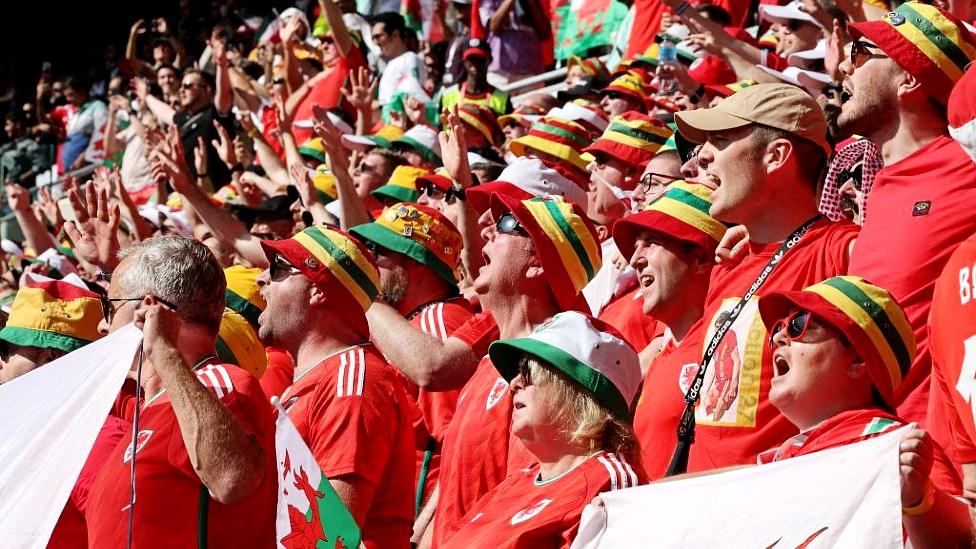
Wales' fans put their hearts and souls into terrace singing in Qatar
Tim Rhys-Evans has been on a mission to bring group singing back into focus for many years.
A trained opera singer, he set up the Only Men Aloud choir in 2000, which went on to achieve national and international fame after winning the BBC show Last Choir Standing in 2008.
The Aloud Charity, external which he founded has since spawned Only Boys Aloud and Only Kids Aloud choirs around Wales.
Now director of music at the Royal Welsh College of Music and Drama, Tim, from New Tredegar, Caerphilly county, grew up in the Welsh chapel movement.
"We didn't have car stereos in those days so every journey was taken up singing Sunday school songs," he said.
"My first musical experiences were going to see the Bargoed male choir performing in my home town chapel."
His motivation for forming Only Men Aloud was to "try and breathe some new life into the Welsh male choir tradition".
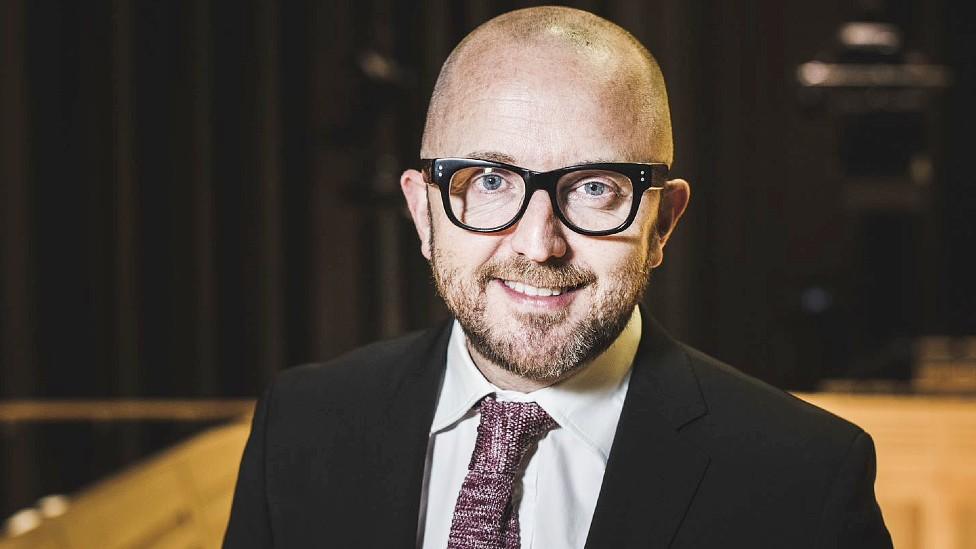
Tim Rhys-Evans wanted to create a space where boys in particular felt encouraged to sing
He focused on boys' singing initially for two reasons - the tradition, but more importantly, the "pressure on boys not to sing... So Only Boys Aloud was about creating an environment where boys could feel safe and encouraged to sing".
However, he laments how music has been viewed as "less and less important in schools" so has welcomed the Welsh government's National Plan for Music Education, external, which will create a National Music Service.
"I'm proud to be in a nation where the expressive arts curriculum aims to make sure that every child up until the age of 16 connects with the expressive arts on a weekly basis."
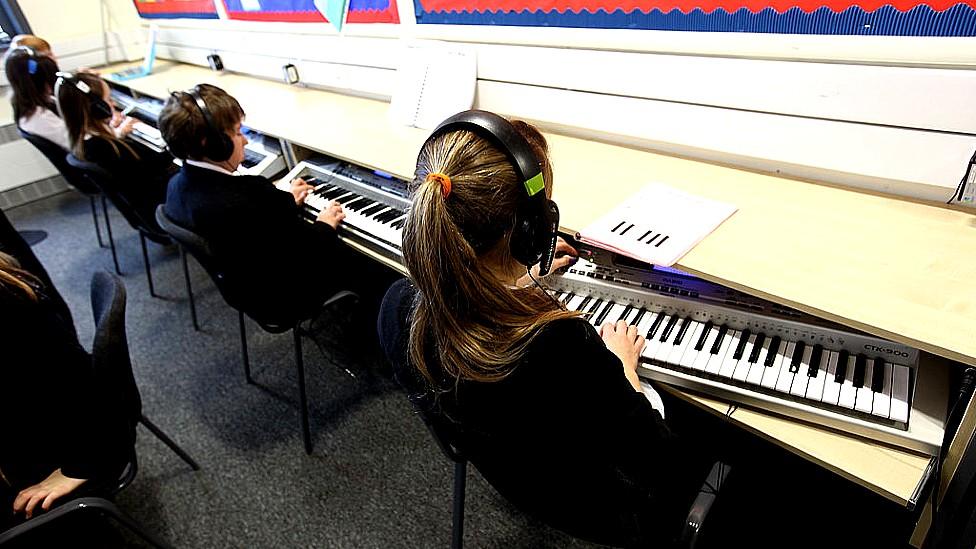
The new Welsh strategy will strengthen music education
He is encouraged by the use of choirs as a form of therapy or bonding, such as Sing with Us, formed by the charity Tenovus for cancer patients, or the Forget Me Not chorus for those with dementia.
"I just think it's different from where it once was," he said.
"Look at the way Yma O Hyd is now ringing around the terraces. All these fans singing with every fibre of their being.
"If we can change the psyche and some of those people think 'I really enjoyed that, I'm going to join a choir', I think that would be a wonderful legacy to come out of the World Cup."
Dr Helen Barlow, senior lecturer in music at the Open University, said the idea of Wales as a land of song was a brand that emerged in the late 19th Century.
Because of the association with chapels, she thinks it is "fair to say that choral singing had an importance to Welsh communities that it possibly didn't have in quite the same way elsewhere".
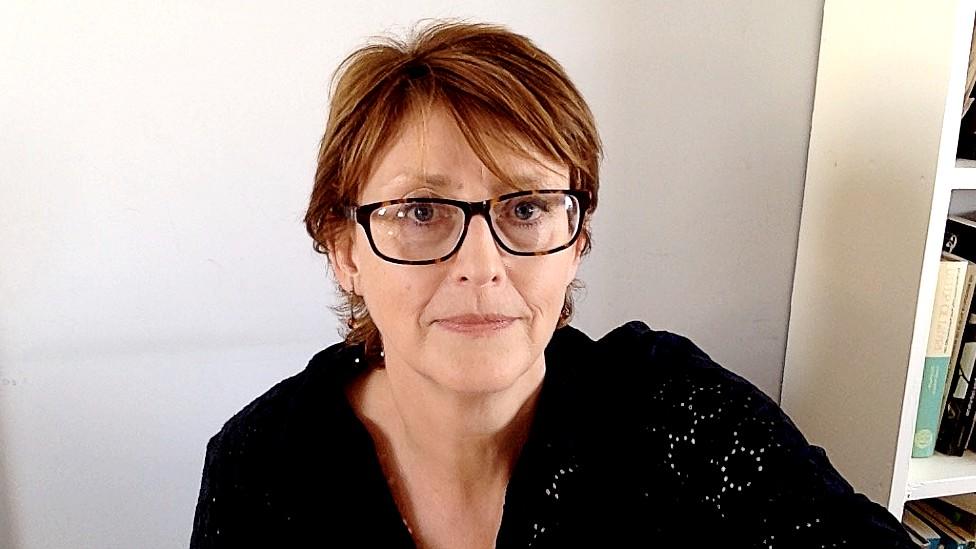
Dr Helen Barlow thinks crowd singing at games is a "genuine survival" of Wales' choral tradition
There was a move to improve the quality of congregational singing in the mid-19th century which led to the Cymanfa Ganu hymn festivals, external, meaning people would practice weekly.
"And that was the thing that really struck people listening to Welsh rugby crowds in the early years of the internationals.
"It wasn't just the volume, it wasn't just the passion - it was the fact they sang in parts. They knew how to sing."
Although music teaching through chapel has largely been lost, Helen sees singing at rugby and football matches as a "genuine survival" of that tradition.
Tim added: "We earned that nickname, land of song, and we should work bloody hard to make sure we don't renege on that contract."

YMA O HYD: Huw Stephens traces the resurrection of the iconic anthem
LOOKING FOR A NEW PODCAST?: The Emiliano Sala Story

- Published25 November 2022

- Attribution
- Published29 November 2022

- Published10 November 2022
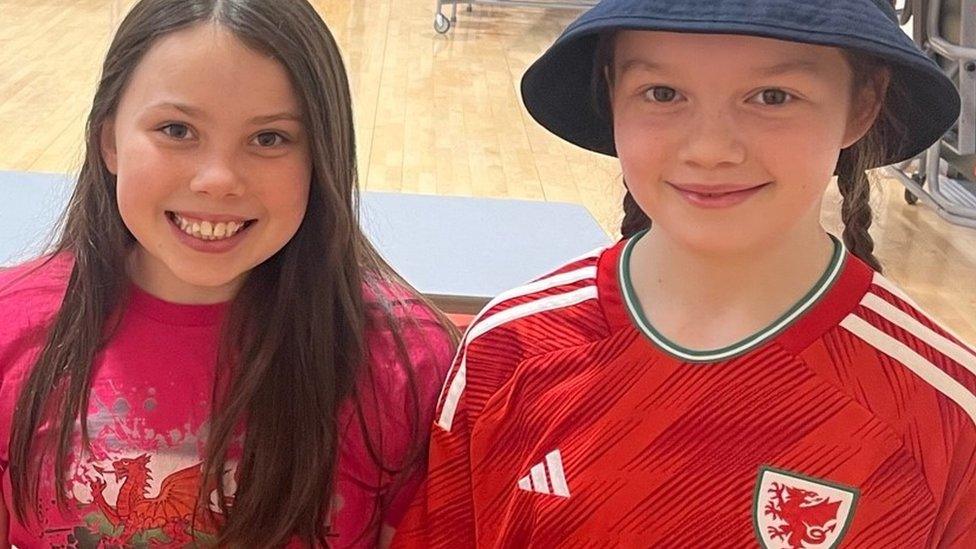
- Published23 November 2022
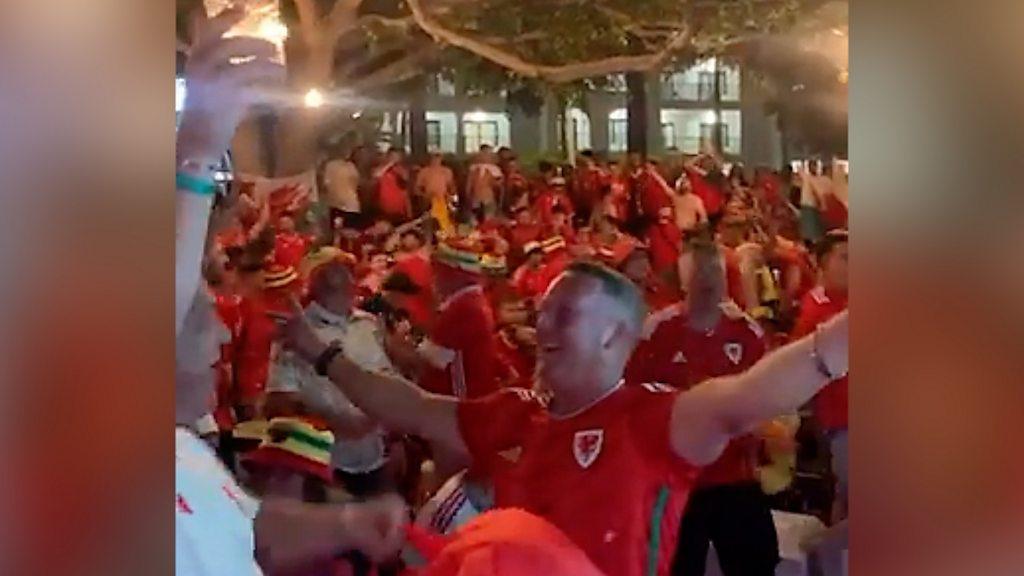
- Published23 November 2022

- Published15 March 2022
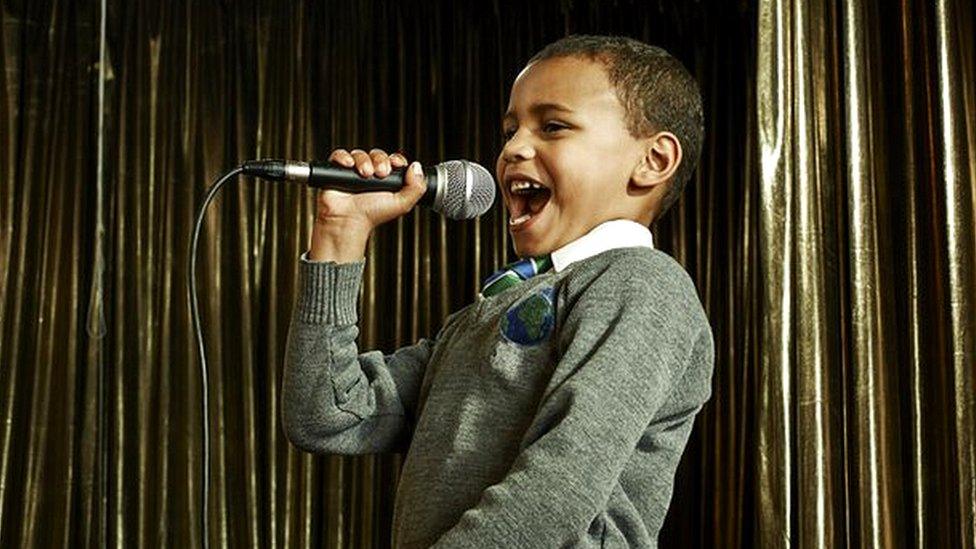
- Published29 November 2022

- Published28 November 2022
